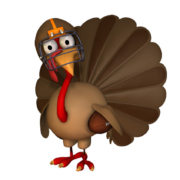Holiday Eating: The Best Solution So Far
In our quest to find the best holiday eating strategy, we may have been looking at the wrong metric. Prior researchers have been looking at the subjects reporting of how well they stuck to their eating habits and exercise program. The final study looked at a hard metric: body weight. Here’s what they did.
Researchers recruited subjects who were overweight and obese but had been losing weight, plus a group of normal-weight subjects. They further divided the two groups into control groups and experimental groups. The control groups simply weighed in before the holiday season began at Thanksgiving, after the season ended on January 1st, and again a month later. The experimental groups also weighed in during those times but in addition, they were told to weigh in every day using a scale with Wi-Fi access. Their results were displayed graphically to chart progress.
What happened? The control groups, whether overweight, obese, or normal weight, gained an average of close to six pounds during the holiday season. The normal weight subjects who weighed themselves daily maintained their weight. Those who were overweight and obese continued to lose weight, losing on average 2.5 pounds. At the one month follow-up, the control group lost only half the weight they gained over the holidays. Researchers speculate that annual holiday weight gain contributes to weight gain over years.
The Bottom Line
What’s the best strategy for holiday eating? There are two things that are critical: maintain your exercise program and weigh yourself regularly, preferably every day. True, your daily weight will fluctuate but you won’t let it get away from you—that’s when you get into trouble. As for your eating habits, not every day is a holiday party with mass quantities of food to consume. Chill out a little during the parties and pitch-ins, but for the most part, stick to your regular eating habits; that applies whether you’re overweight or not. I think that’s the best strategy for the holiday season.
What are you prepared to do today?
Dr. Chet
Reference: Obesity. 2019;27(6):908-916. doi: 10.1002/oby.22454









